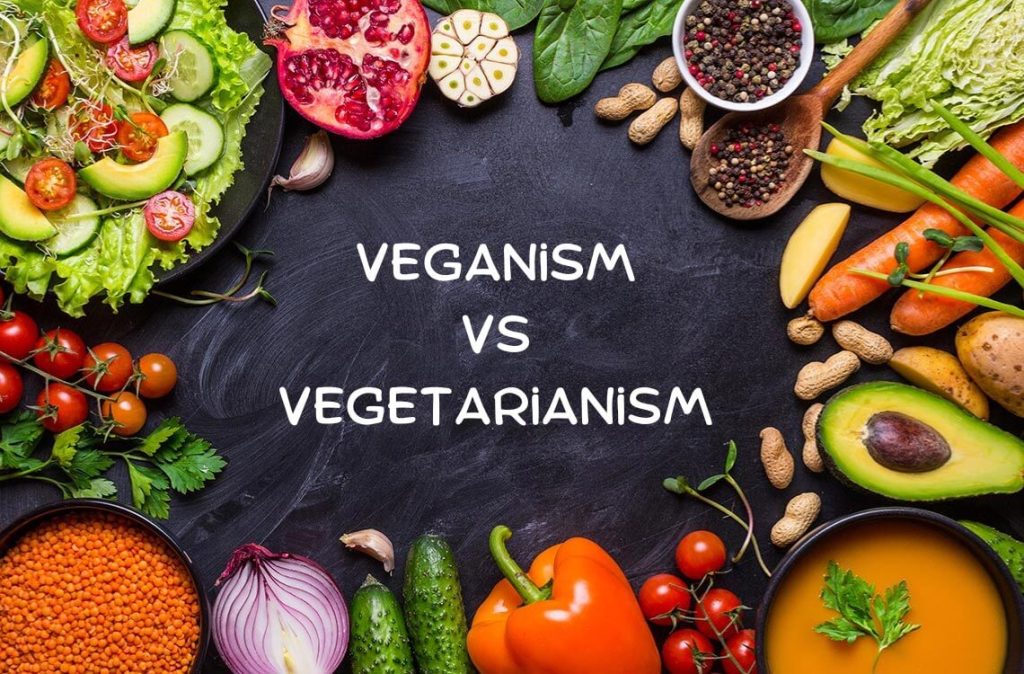Plant-based diets are all the rage these days.
Whether you do it for ethical, environmental or spiritual reasons, there is no doubt that a ‘greener’ diet definitely holds some significant health benefits.
The two most common plant-based lifestyles, veganism and vegetarianism, are often confused for one another. But they are in fact completely different.
What they do have in common is that both exclude all animal meat including fish, poultry, beef, pork, etc.
But that’s where the similarities end.
Here are the pros and cons of veganism and vegetarianism.
Types of Plant-Based Diets
Vegetarianism
While vegetarianism does exclude animal meat, it allows animal byproducts. This includes things like dairy products (milk, butter, cheese) eggs and honey.
Some follow specific sub-sects of vegetarianism such as ovo-vegetarianism (only eggs allowed), lacto-vegetarianism (only dairy allowed), and pescatarian (only seafood allowed).
There may be a mix and match approach to these options. However, the main component of their diet is still mainly vegetables and fruits and other plant-based products.
Benefits of Vegetarianism
While you may still need to prepare your own food most of the time, you have more options on the table while you go grocery shopping.
You also don’t have to forego many of the sweet and savoury pleasures that vegans have to sacrifice.
Even with so many creative plant-based alternatives like nut milks and imitation cheese, nothing quite compares like the original. Vegetarians don’t have to give up ice-cream or mac and cheese.
Disadvantages of Vegetarianism
Even with the options available, vegetarians still experience some restrictions in their day-to-day life.
Your social life will definitely be impacted. You may need to eat in advance before going out with your non-vegetarian friends to a non-vegetarian restaurant.
That said, many vegetarians do tend to sacrifice health for convenience. Just because something is vegetarian doesn’t mean it’s necessarily healthy.
Vegetable oil is vegetarian, lots of carbs like rice and pasta are vegetarian as well.
Veganism
Veganism is the ‘purest’ plant-based diet, it is also the most restrictive.
Vegans typically omit all animal products, including by-products like milk, butter, cheese, eggs and yes, even honey. Their veganism may extend beyond their dietary preferences.
Things like skincare, cosmetics, toiletries, and even clothes must be ‘vegan’ or at the very least cruelty-free. Not damaging ecosystems or tested on animals.
Most of the time, people who adopt the vegan life do so for ethical and environmental reasons.
But almost half do it for health or medical purposes. Some people literally can’t have animal products in their diets.
Benefits of Veganism
If we’re talking about being eco-friendly, veganism takes the cake.
Even if you don’t support the meat industry, processing animal byproducts still leaves an impact on the environment. Especially milk and eggs.
Next, vegans tend to have better health outcomes than vegetarians.
Milk and cheese and other dairy products are still very rich in fat. Eggs are high in cholesterol, too.
Disadvantages of Veganism
As a rule, plant-based diets in general can result in a certain level of nutritional deficiency. Even with supplements.
But vegans especially find it hard to get the macro and micronutrients they need from wholefoods like protein and vitamin D.
On the other hand, vegetarians are still able to enjoy milk and eggs.
And just like vegetarians, you’ll be spending most of your time in the kitchen, meal-prepping your weekends away.
And you’ll also probably won’t have that much fun when you’re invited to a barbeque or family gathering and there’s not a single vegan food in sight.
More Than One Way to Go Plant-Based
If you’re looking to go on a plant-based diet, there are only so many options you can choose from.
However, in general, vegetarians enjoy a more flexible lifestyle than vegans with a less likelihood of nutrition deficiency.
That said, both veganism and vegetarianism require a lot of sacrifice, experimentation and effort. You’ll likely end up having to prepare a lot of your own food.
But if you’re doing it for medical or environmental reasons, the impact will definitely be felt. Veganism especially is very eco-friendly and has been linked to several beneficial health outcomes.
Whatever you choose, going green will definitely bring a positive change to the world and help us all move towards a more sustainable future.
Disclaimer: The information provided in this article is for informational purposes only and should not be considered as medical advice from Mamahood. For any health-related concerns, it is advisable to consult with a qualified healthcare professional or medical practitioner.
For more insightful stories and parenting advice, stay tuned to Mamahood Singapore!
